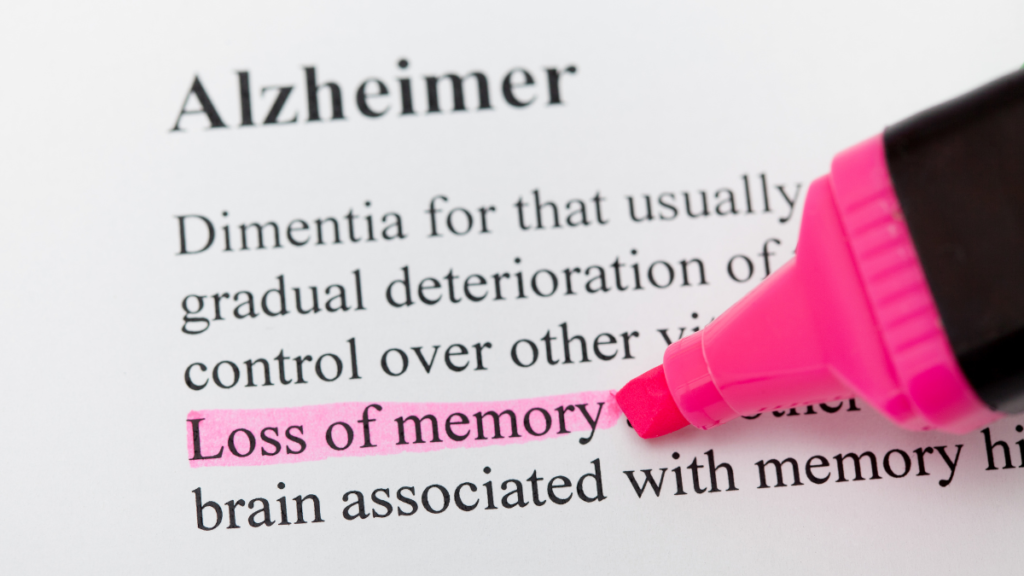Deciphering Neurodegenerative Diseases: Alzheimer’s and Parkinson’s
Neurodegenerative diseases cast a shadow on the intricate workings of the brain, impacting millions worldwide. Two prominent players in this realm are Alzheimer’s Disease and Parkinson’s Disease. Let’s embark on a journey to understand these complex conditions, exploring their characteristics, causes, and avenues for management.

1. Alzheimer’s Disease: Unraveling Memory’s Fading Threads
– Definition: Alzheimer’s Disease is a progressive neurodegenerative disorder characterized by cognitive decline, memory loss, and changes in behavior.
– Causes:
– Abnormal accumulation of beta-amyloid plaques and tau tangles in the brain.
– Genetic factors (familial cases) and age-related risk.

– Symptoms:
– Memory loss, confusion, difficulty in problem-solving, and personality changes.
– Progressive decline in cognitive function.
– Diagnosis: Clinical assessment, cognitive tests, and imaging studies may aid in diagnosis.
– Management: While there is no cure, treatment focuses on symptom management and support for affected individuals and their families.

2. Parkinson’s Disease: Navigating the Dance of Tremors
– Definition: Parkinson’s Disease is a progressive disorder affecting movement, characterized by tremors, stiffness, and impaired balance.
– Causes:
– Degeneration of dopamine-producing neurons in the brain.
– Genetic factors and environmental influences.
– Symptoms:
– Tremors, especially at rest.
– Stiffness in limbs, slowness of movement, and impaired balance.
– Diagnosis: Clinical evaluation, neurological examination, and sometimes imaging studies assist in diagnosis.
– Management: Medications, physical therapy, and lifestyle adjustments aim to alleviate symptoms and improve quality of life.
Commonalities and Distinctions:
– Neurodegeneration: Both diseases involve the progressive degeneration of neurons but affect different regions of the brain.
– Memory vs. Movement: Alzheimer’s primarily impacts memory and cognitive function, while Parkinson’s primarily affects motor function.
Hope Amid Complexity:
– Research Advances: Ongoing research explores potential treatments and preventive measures for both diseases.
– Support Networks: Caregiver support and patient advocacy play crucial roles in managing the challenges associated with these diseases.
Conclusion: Nurturing Compassion in the Face of Complexity
Understanding Alzheimer’s and Parkinson’s is a step towards compassionately navigating the complexities of neurodegenerative diseases. While there is no cure, ongoing research, early detection, and supportive care contribute to improved outcomes and enhanced quality of life.
FAQs about Neurodegenerative Diseases
1. Is Alzheimer’s Disease only about memory loss?
– While memory loss is a hallmark, Alzheimer’s also affects other cognitive functions, including problem-solving, language, and decision-making.
2. Can Parkinson’s Disease be prevented?
– While prevention is challenging, certain lifestyle factors like exercise and a balanced diet may contribute to overall brain health. Early detection and management can also improve outcomes.
3. Are there medications to halt the progression of these diseases?
– Current treatments focus on symptom management rather than halting disease progression. Research is ongoing to develop disease-modifying therapies.
4. How do these diseases impact daily life?
– Both diseases present significant challenges in daily functioning. Alzheimer’s may affect daily memory and cognitive tasks, while Parkinson’s can impact movement and coordination.
5. Is there hope for a cure in the future?
– Ongoing research provides hope for potential treatments and preventive measures. Early diagnosis and participation in clinical trials contribute to advancements in understanding and managing these diseases.
- Digestive Tapestry: Navigating GERD and IBS
- Mental Health: Navigating Depression and Anxiety Disorders
- Exploring Dental Health: Understanding Periodontal Disease
- Navigating PCOS in Women and Erectile Dysfunction in Men
- Decoding Vision Challenges: Understanding Age-Related Macular Degeneration (AMD)
- H3N2 लक्षण: स्वास्थ्य पर फ़्लू स्ट्रेन के प्रभाव को समझना, कैनाइन इन्फ्लुएंजा महामारी: H3N8 और H3N2 के प्रसार को समझना और रोकना






